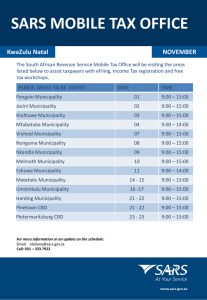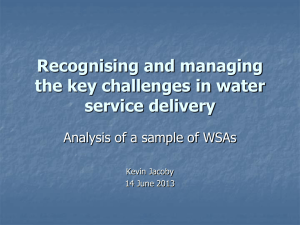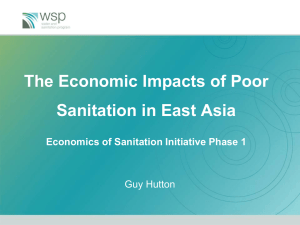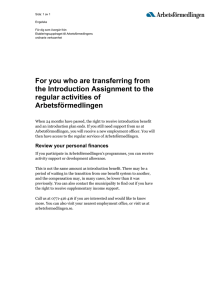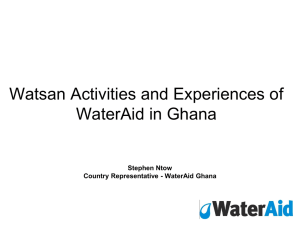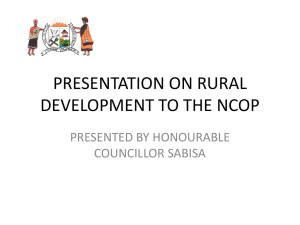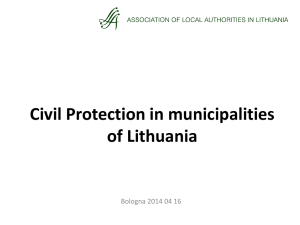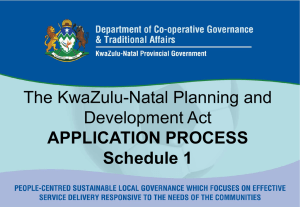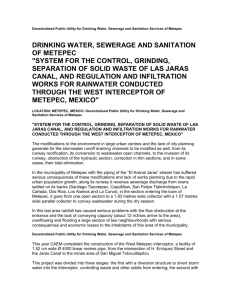Langaville
advertisement
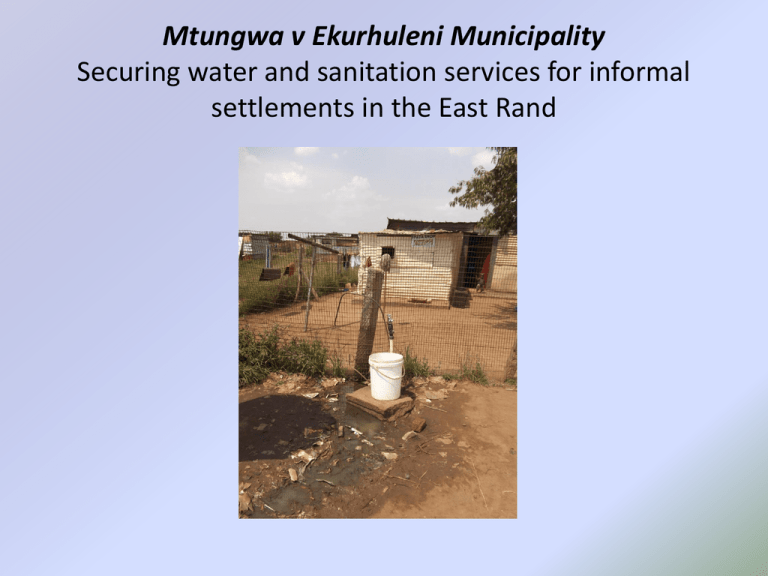
Mtungwa v Ekurhuleni Municipality Securing water and sanitation services for informal settlements in the East Rand Langaville •Ekurhuleni Municipality, Tsakane •Langaville part of RDP extensions •Informal settlement of 3600 residents •Three settlements- extension 18 (108 shacks, no water supply), extension 3 (184 shacks, 1 water point), extension 6 (1016 shacks, 1 working water point) •Different levels of formality •Extremely poor-most earning under R1000 per household per month •Low education •Limited services (either governmental or NGO) Access to services in Langaville • Water – Standpipes provided by the municipality – ‘illegal’ taps – Begging from local RDP houses – Extreme shortage • Sanitation – No provision by the municipalityinformal/begging • Electricity – No provision by the municipality-informal connections The impacts of limited access to services • Taps – Long queues at taps – Difficult for those who are employed to queue – Most residents live more than 200m away-up to 1km – Insufficient flow rate – Have to push water over difficult terrain to get back • Begging – Have to come at certain times – Have to pay • Lack of electricity – Safety from crime – Fires • Lack of water – Can rarely afford enough water to wash – When not enough water can’t cook basic staples-pap and vegetables. Spend more money on food or have pap pancakes – HIV/AIDS-difficulty with taking medicine – Can’t wash hands after toilet • Lack of toilets – Use pit latrines next to shacks – Unhealthy: attracts vermin, flies, and disease – Sometimes pay to use RDP toilets or go in the bushes Applicable legislation and regulationsWater • S27 (1)(b) of the Constitution – Everyone has the right to have access to sufficient water • R3 of the National Regulations – Sufficient connections to supply a minimum quantity of potable water of 25 litres per person per day or 6 kl per household per month – At a minimum flow rate of not less than 10 litres per minute – Within 200m of each of the resident’s households – With an effectiveness such that the residents are not without a water supply for more than 7 full days in any year • Water Services Act – s1 Basic water supply means the prescribed minimum standard of water supply services necessary for the reliable supply of a sufficient quality and quantity of water to households, including informal households, to support life and personal hygiene – S3 Everyone has a right of access to basic water supply Applicable legislation and regulationsSanitation • R2 of the National Regulations – The minimum standard for basic sanitation services is a toilet which is safe, reliable, environmentally sound, easy to keep clean, provides privacy and protection against the weather, is well ventilated, keeps smells to a minimum and prevents entry and exit of flies and other diseasecarrying pests • Water Services Act – S1 Basic Sanitation means the prescribed minimum standard of services necessary for the safe, hygienic and adequate collection, removal, disposal or purification of human excreta, domestic waste water and sewerage from households, including informal households. – S3 Everyone has a right of access to basic sanitation Ekurhuleni Metropolitan Municipality Indigent Policy • • S6- indigent person- a person lacking the necessities of life such as sufficient water, basic sanitation, refuse removal, health care, housing, environmental health, supply of basic energy, food and clothing S8 –policy must be accessible to all qualifying residents, implying that currently unregulated settlements...must be brought into the municipal system so that such residents are not excluded. • Problems – S14-relief is provided by way of credit to an existing municipal account – S11-housholds that are not registered with the municipality as consumers of services are precluded from receiving support – S10-support is to residents of the municipality who are unable to pay their municipal accounts. – Practical implementation • Authorised settlements only • Working through a councillor; community problems with councillor Nditha Ekurhuleni Metropolitan Municipality Interim Services Report • Interim services report – Accepts that informal settlements must be included in basic sanitation and water at least as a temporary measure – Municipality undertakes to implement a water standpipe within 200m of each household, or if not possible, by means of water tankers. Agrees that this can be increased – 1 chemical toilet per 10 families, where health problems are associated with pit latrines Strategy-enforcement and implementation, not challenge • Interim services report could constitute compliance with the regulations • Government commitment to provision • Community concerns – Happy with standard laid out in interim services report. – Cf electricity • Mazibuko – the difficulties of challenging policy regarding water and sanitation • The indigency policy – Reserved the right to amend the notice of motion to seek to declare the policy unconstitutional and invalid – Reliance on the regulations • Electricity – community concerns v litigation imperatives Collaboration Difficulties • Community committees • Information gathering – Indigency Policies – Interim services report – Extent of settlement • Extensions 3, 18 and 6 – Extent of problem • Number of taps • Whereabouts of taps – Community structure • Splitting up the community Settlement? • Settlement v litigation • Municipality willingness to settle • Impact of litigation on enforcement discussions • Current offer: – 2 standpipes in ext 18 – 2 standpipes in extension 3 and refurbishment of existing standpipe – 6 standpipes in nondeveloped part of extension 6 – 7 (subject to confirmation) standpipes in developed part of extension 6 – Thereby ensuring a water supply of sufficient quality within 200 m of each resident’s household – 1 chemical toilet per 10 families Lessons • Collaboration – With TAC – With government • Caution – With community leadership – With on the ground descriptions • Enforcement of policies • Issues with indigent policies


